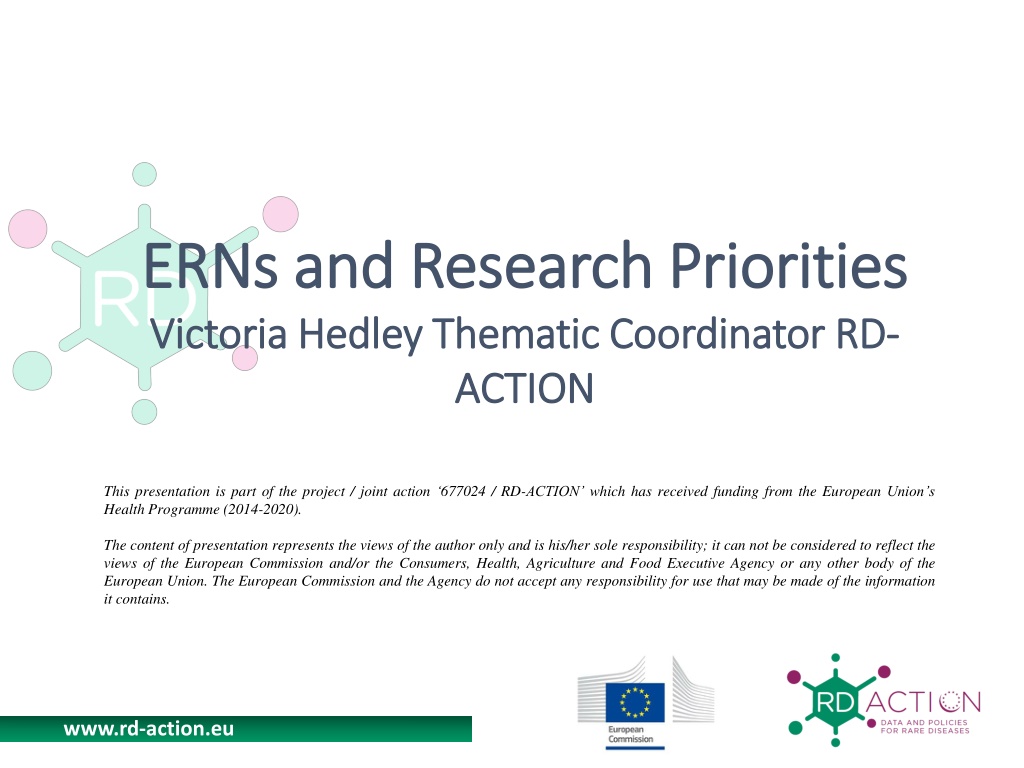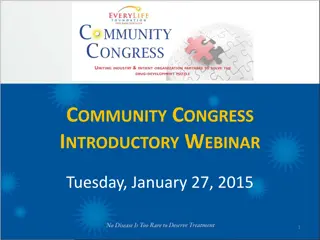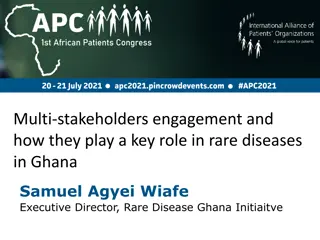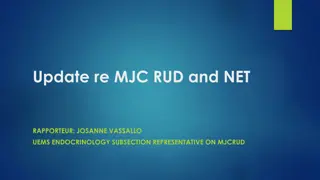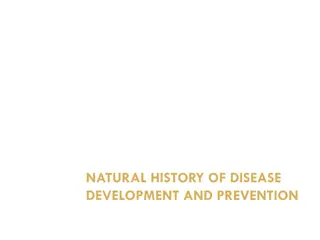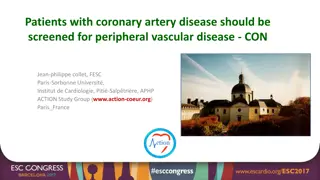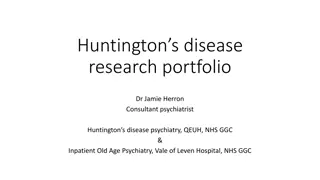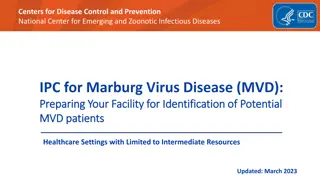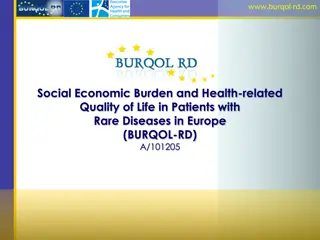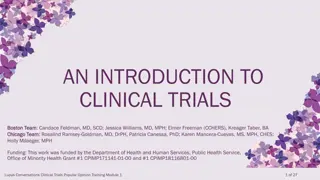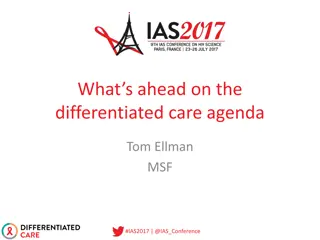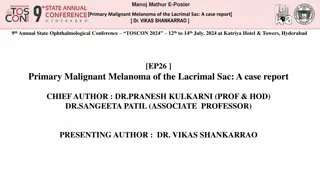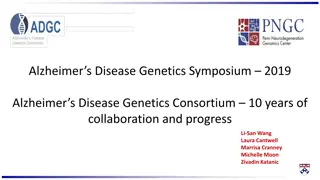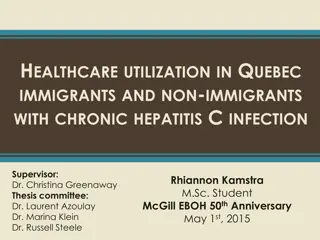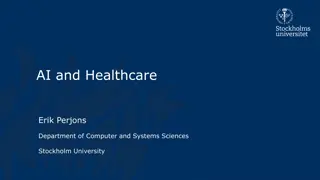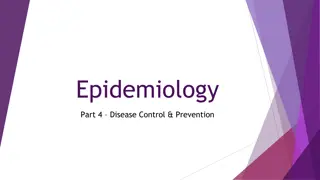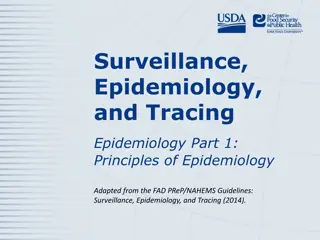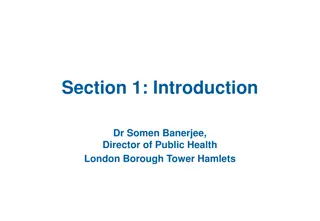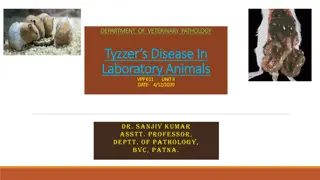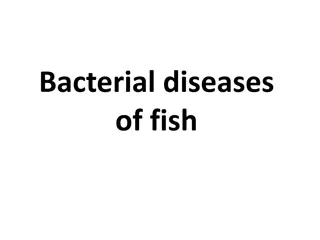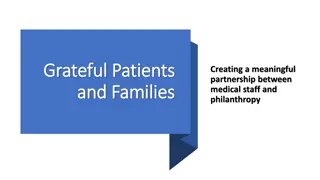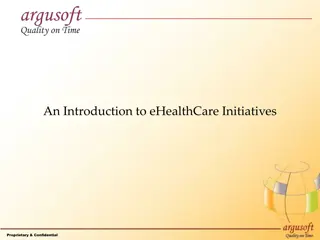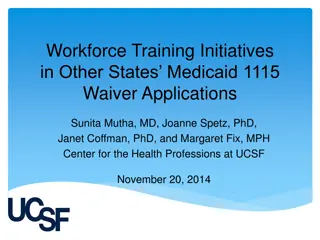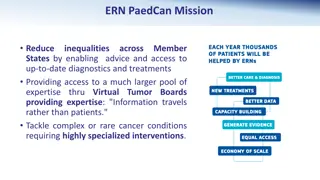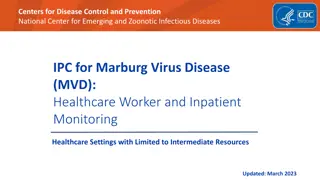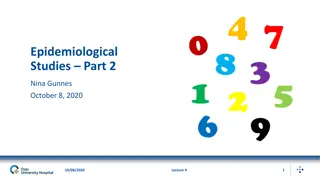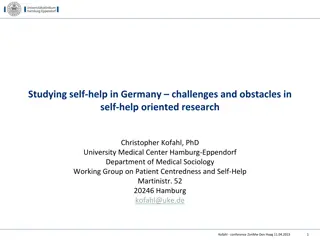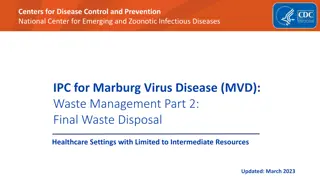Advancing Rare Disease Research and Healthcare Initiatives
This presentation highlights the objectives, thematic priorities, and actions of the RD-ACTION project funded by the European Union's Health Programme. It focuses on supporting the Orphanet database, promoting multi-stakeholder debates on rare diseases, and enhancing data sharing and healthcare pathways. The content emphasizes the importance of coordinated approaches, genetic testing advancements, and the socio-economic burden assessment of rare diseases, with a goal of integrating rare diseases into social policies and specialized services.
Download Presentation

Please find below an Image/Link to download the presentation.
The content on the website is provided AS IS for your information and personal use only. It may not be sold, licensed, or shared on other websites without obtaining consent from the author. Download presentation by click this link. If you encounter any issues during the download, it is possible that the publisher has removed the file from their server.
E N D
Presentation Transcript
ERNs ERNs and Victoria Victoria Hedley and Research Research Priorities Hedley Thematic Thematic Coordinator ACTION ACTION Priorities Coordinator RD RD- - This presentation is part of the project / joint action 677024 / RD-ACTION which has received funding from the European Union s Health Programme (2014-2020). The content of presentation represents the views of the author only and is his/her sole responsibility; it can not be considered to reflect the views of the European Commission and/or the Consumers, Health, Agriculture and Food Executive Agency or any other body of the European Union. The European Commission and the Agency do not accept any responsibility for use that may be made of the information it contains. www.rd-action.eu
Objectives Objectives Support the further development and sustainability of the Orphanet database, the biggest global repository of information on RD Contribute to solutions to ensure an appropriate codification of RD in health information systems Continue Recommendation 2009/C151/02 and the Commission Communication (COM 2008 679) on RD, with a view to ensuring the sustainability of the recommended priority actions and to support the work of the Commission Expert Group on Rare Diseases (CEGRD). implementation of the priorities identified in Council Promote, catalyse and trigger multi-stakeholder debates around RD www.rd-action.eu
WP6 Thematic Priorities WP6 Thematic Priorities ERNs E-Health and data sharing Registries and Data Platforms CEs and healthcare pathways Genetic testing/Next Generation Sequencing (and Genetic counselling) Coordinated approaches to pricing and increased access to therapies. Translation of research to care and back again Public Health Indicators E-Health and data sharing Centres of Expertise and healthcare pathways Therapy development ERNs Genetic testing/Next Generation Sequencing Registries and Data Platforms Methodology for assessing the Socio- economic Burden of Illness of rare disease Primary Prevention of rare congenital anomalies (in fact secondary and tertiary) Best Practices/ guidelines on diagnostics Integration of rare diseases into Social Policies and Specialised Social Services www.rd-action.eu
RD RD- -ACTION & ERNs ACTION & ERNs As ERNs are established & evolve, dedicated guidance is important to support and also to ensure a baseline compatibility and interoperability (at many levels) between the ERNs Workshops are an important part of this: Exchanging Data for Virtual Care in ERNs Using standards & embedding interoperable data sharing in ERNs Indicators and Outcome Measures to demonstrate impact & efficacy of ERNs good practices to promote www.rd-action.eu
ERNs & Research ERNs & Research the legal Acts the legal Acts (5) To fulfil the requirement set out in point (iv) of Article 12(4)(a) of Directive 2011/24/EU ( make a contribution to research ), the Networks must: (a) identify and fill research gaps; (b) promote collaborative research within the Network; (c) reinforce research and epidemiological surveillance, through setting up of shared registries. (c) with regard to research and training capacity, applicant providers must: (i) have the capacity to provide academic, university or specialised level training; (ii) have human, technical and structural capacity, skill mix and resources; (iii) have research capacity, and demonstrated research experience or production in the area of expertise of the Network, at national and international level; www.rd-action.eu
Questions addressed to ERNs Questions addressed to ERNs 1. What are the main research priorities ideally translational research in particular- of your ERN, at present? Are there any goals from your proposal or 5 year grant plans you would like to highlight? 2. What would support you in achieving your research goals (besides more money!) 3. Does your ERN consortium multinational / European research infrastructures / tools/ resources at present? If not, do you have any plans to do so Responses from 8 ERNs to-date engage with particular www.rd-action.eu
Research Priorities Research Priorities Need to remember that some Groups are very new, not to research, but to research at a pan-European or global level, and/or to research at the level of the current ERN scope. Need to remember too that the primary goal is CARE essential though that we support all 24 to flourish here, especially in translational research In some cases, goal is to devote the first year or two years entirely to mapping research. Others plan to accelerate and further develop research activities within the ERN www.rd-action.eu
Registries Registries have huge role to play in research in fact, it is very difficult to conduct (clinical) research without them Several attest the importance of having at least a basic registry either under the CDMP or not Epidemiological info lacking in many area, esp. on underlying etiology: early priority to close this gap by maturing existing registries and making data interoperable For others, goal = more ambitious: full Interoperability of all registries in all MS and connection with EU Registry Platform, Ispra www.rd-action.eu
Registries and Biobanks Registries and Biobanks Several cite desire to link data from biobanks & registries Many ERNs will deliver annual Inventory of existing registries & biobanks in their field and update each year Some set v. specific goals e.g. 10% increase in the number of samples and data for research Database of shared samples through deposition at biorepositories and omics/phenotypic data to databases www.rd-action.eu
Basic Research Basic Research A specific roadmap for basic research in the further elucidation of the mechanisms involved in tolerance/rejection of paediatric transplantation Cellular studies as a base for future interventions on cellular therapy; We need to expand research on pathophysiology to better understand the correlation of metabolic pathways (usually in metabolics there a primula movens (primary defect) but then a second cascade of effects often causes thee real trouble to the patients Several did mention planned investment in Animal models e.g. To conclude ongoing animal model work (including a sheep model) to move to clinical trials in the HCPs with expertise in surgery. Partners are working on developing a new tissue engineered advanced material for complex urogenital surgery that will be explored as a safer alternative to mesh. Aim to seek funding to bring this to CT in 4thyear www.rd-action.eu
Prioritisation of Innovative, Prioritisation of Innovative, Personalised, Personalised, Translational Translational Research Research Safer surgical procedures prioritised by several ERNs (big emphasis on personalised medicine) e.g. Developing a new and safer material to replace mesh in urogenital surgery and begin European clinical trials : Plan to Introduce innovative therapy options to clinical practice, such as reconstructive and regenerative medicine improvements - our ERN will facilitate the translation and quicker uptake of new innovations across Europe. www.rd-action.eu
Clinical Trial Priorities Clinical Trial Priorities We will establish Clinical Trials Networks in all subdomains Others specify desire to establish CTs in specific conditions Promote trial recruitment for poor prognostic groups, enabling new chemotherapy, radiotherapy and combination regimens to be trialled; Few set concrete goals e.g. 10% Increase in the number of patients included in clinical research (clinical trials, natural history) Patients receiving diagnosis, treatment or care via the NMD ERN will be informed about research in general, specific to their condition, and opportunities to participate in research (e.g. biobanks, registries, natural history studies and clinical trials). Many plan to produce annual reports on Research Projects and Clinical Trials www.rd-action.eu
Outcome Measures & Trial design Outcome Measures & Trial design Need new methodology for CTs as current are inadequate and the primary endpoints are usually not appropriate to give a real idea of efficacy of therapies Identify and adopt at least 1 appropriate outcome measure to demonstrate efficacy, to support trial- readiness Develop a scale for urinary and faecal incontinence in CAYP, to be a vital tool for patient self assessment, objective registrations, therapy selection and www.rd-action.eu evaluation
QoL QoL and Prioritisation of Socio and Prioritisation of Socio- - Economic Research Economic Research Only one or two ERNs highlighted this specifically, so far: Need mapping and evaluation of: nutritional requirements in transplanted children; current problems in immunosuppression self-management; current problems in the psychological adaptation of transplanted children during adulthood, etc Plan to define guidance and solutions to these problems. Need dedicated research to assess the social & economic impact of paed. transplantation & define measures to reduce this perform cost-effectiveness analysis (CEA) of current interventions and for the implementation of the new ones Need HTA analysis on burden for metabolic disease: true cost unknown www.rd-action.eu
What will support your research What will support your research goals? goals? Facilitated inclusion of recognised centres in calls Simplifying the procedure to answer a call More specific calls (like the one on registries) but fewer competitive calls Open source re-usable software (e.g. for registries) Ability for Fruitful synergies with other ERNs Workable IT Platform that retains data for re-use Support in getting the best out of data Consensus on PROMs that can be applied across ERNs and Online system for collecting them www.rd-action.eu
Highlighted Initiatives ERNs work Highlighted Initiatives ERNs work with already with already (Everyone works with learned societies & disease relevant bodies) JRC HPO Orphanet & Snomed CT RD-Connect EUROCAT BBMRI ELIXIR EuroBioBank Network and Fondazione Telethon www.rd-action.eu
